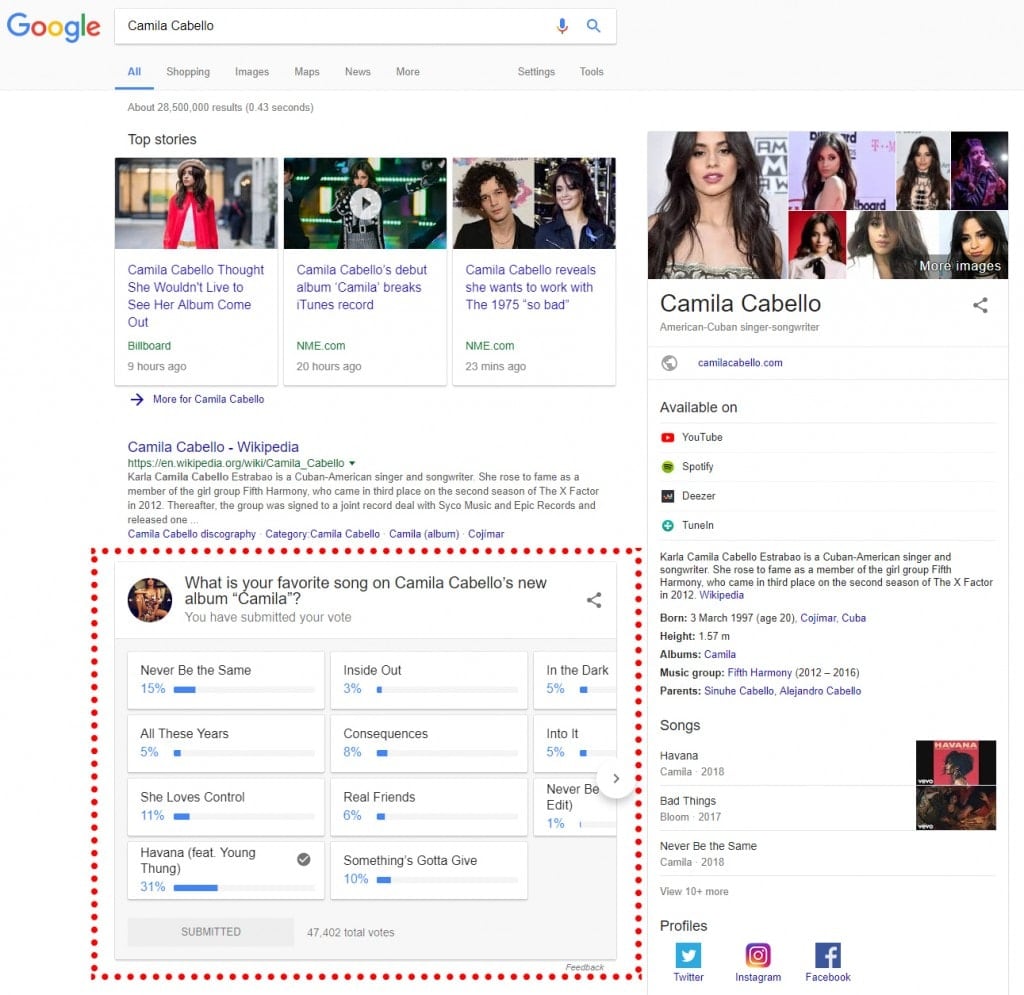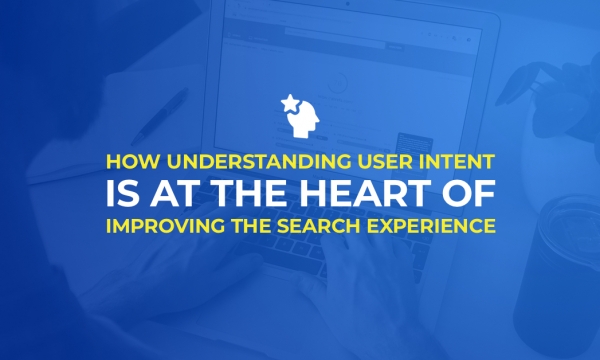SEO Lead Richard Hird spotted an interesting development in some search results pages this week, when a search for the pop music star Camila Cabello returned a poll asking users to select their favourite song from the artist.

The vote is appearing in several non-English speaking SERPs such as Spain, France and Germany although interestingly, the question is not being translated (it remains as “What is your favorite song on Camila Cabello’s new album Camila?”)
The reasons behind this aren’t entirely clear as yet, although it is possible that the results of this data could be used to influence future searches around this artist. For example, it may influence the order of YouTube videos from this artist in a playlist.
Trust Indicators
This development follows on from sightings in Google from across the SEO community of new trust indicators being added to third party content within the search results, where Google adds ‘best answer’ or other trust indicators to search results from web forums, discussion groups and social platforms such as Reddit.
Jack Clark spotted this snippet for a search query around the UK’s reaction to the Franco-Prussian war, which included the original question, the best response from Reddit, and the number of ‘votes’ that the question had received from the community that follows the “AskHistorians” sub-reddit.

The appearance of this snippet seems to be the result of a ‘question’ Schema being used on Reddit to help signal these kind of details to Google, including the answer text itself and the vote number (although at the time of writing, the number of votes is actually 22, not the 20 indicated).
Authority answers from the experts
The appearance of such results is not a huge surprise, and is likely to become much more common. Back in December there were some sightings of an ‘answers carousel’ in Google search, where Google was pulling in answers from trusted sources, web forums and discussion groups and highlighting which were considered to be the “best answers” (usually based on the number of votes).
What Google is doing here is demonstrating clearly to the user is that, instead of the result being the one that Google has determined to be the best one, this is the result that other people with an interest, knowledge or expertise in the subject matter have determined to be the best one. That is a big selling point for the search engine.
What determines a trusted source?
In the case of user polls, Google has easy access to a critical mass of users and that will likely mean that it can gather a significant amount of data to consider as it determines how its algorithms organise content on that subject.
For forums and discussions, the appearance of Reddit as a search snippet is interesting. Whilst a huge domain, it is one that has a rather mixed reputation.
Reddit is made up of various “sub-reddits”, where people with shared interests in a particular topic can discuss issues around that topic. For example, “/r/soccer” is a sub-reddit for soccer fans, whilst “/r/London” is where people can discuss issues relating to the city of London. Whilst many of these sub-reddits are thriving communities with a strong following of informed users, it is fair to say that others do not fall into that category.
Of course, forum voting systems are one potential metric, but it’s very common for poor content or even offensive content to be up-voted depending on the community. Instead, factors such as the length and depth of content, the level of activity within the forum and the way in which the forum is moderated are all likely to be key factors. This particular search result, the sub-reddit is well moderated and often removes posts that don’t contain the level of detail or accuracy necessary, ensuring that answers are trustworthy.
So what now?
The decision by Google to embed voting panels into search results is an interesting one.
It wouldn’t be difficult for Google, with all of the data at its disposal, to determine what the most popular Camila Cabello track was in any given market. It has access to YouTube engagement data, it has access to search data and access to third party data such as record sales and charts, so the fact that it is asking users explicitly is perhaps a sign of how it is trying to further personalise search results on an individual level.
How this will be rolled out across other searches, and whether this will be applied to commercial searches longer term, remains to be seen. It does however suggest that a bigger focus on community feedback and content is going to play a bigger role in the user search journey.


